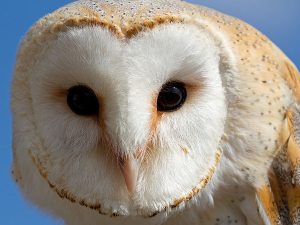The Woodland Trust share the latest findings from their Nature’s Calendar project and invite you to get involved as one of the thousands of volunteers who make it happen each year.
Our lost winters are throwing nature into a state of confusion
As butterflies and newts are spotted in December, earlier than nature intended, scientists warn that species are losing their seasonal cues as winters warm and seasons morph.
Latest data from Nature’s Calendar, the UK’s largest study of the seasons, shows that active butterflies and newts and nesting blackbirds have already been spotted, months earlier than normal. This may spell disaster for some species, tempted out of hibernation too soon, as our increasingly erratic weather could yet bring fatal plummeting temperatures. And some birds appear to be breeding too late to capitalise on vital food sources.
Lorienne Whittle, Nature’s Calendar Citizen Science Officer at the Woodland Trust said:
It seems that last year we almost lost winter as a season – it was much milder and our data shows wildlife is responding, potentially putting many at risk. Our records are showing random events such as frogspawn arriving far earlier than expected, possibly to be wiped out when a late cold snap occurs.
The project compiles records of seasonal activity, sent in by thousands of volunteers across the UK, such as the first flowering snowdrop in spring to the first ripe berries of autumn. Final analysis of the 2019 data reveals that all but one, of over 50 spring events it tracks, were early, but by varying amounts. This adds to our knowledge of how climate change is having a direct and potentially detrimental impact on the survival of UK wildlife.
This is in line with the MET Office’s analysis of the last decade. Earlier this month it revealed that the last decade was the warmest on record, and 2019 was the second warmest year since 1850 when records began.

Credit: Woodland Trust
Some species appear to be falling out of sync with each other because each responds individually and at different rates to rising temperatures.
Lorienne continues:
It appears that some species are able to adapt to the advancing spring better than others. Oak trees respond by producing their first leaves earlier and caterpillars seem to be keeping pace. But blue tits, great tits and pied flycatchers are struggling to react in time for their chicks to take advantage of the peak amount of caterpillars, the food source on which they depend.
Danny Clarke , garden designer and TV presenter, is supporting the Woodland Trust in its call for more recorders. He said:
In recent years I’ve witnessed undeniable changes to our weather patterns. Gone are the times when a freezing snowy winter would be a certainty. Indeed I can count the toes on one foot, how many severe frosts are encountered at this period during recent years.
I can’t help noticing how many deciduous trees are hanging onto their leaves for longer and on occasions not shedding them. Also daffodils and tulips show themselves earlier than expected only to be knocked back by a cold spell. The tree and plant world doesn’t know whether to stick or twist at the moment and that’s down to climate change. I know of clients who continue to trim their lawns through the winter period. It’s bonkers mad!
How you can help
The project is now in its 20th year and is calling for more recorders to give an even clearer picture of the impact of climate change on our wildlife throughout the next decade. Its database currently contains 2.9 million records, collected since 1736, which are being used by researchers internationally. To get involved, visit our website.
Volunteer Valerie Hurst, who has recorded for Nature’s Calendar for nearly twenty years, said:
The changes in the constancy of nature give real clues to climate change and are an indicator of climate change that we can all observe. I would say for me the point of real interest is the first snowdrop which seems to come ever earlier in January and the last leaf on the oak which seems to stay even longer into December.

Credit: Woodland Trust
Recent observations
Peacock butterfly: This overwinters as an adult in the UK. We had a record on Christmas eve (Kent) and another on 31/12/19 (Cornwall). In the past 10 years we’ve only had 2 other December records. We suspect they have woken early due to mild weather in the south of the country.
Red admiral: Spotted on a sunny wall on 30/12/19 in the Channel Islands. Only 4 December records in the past 10 years.
Newts: Active newts recorded on 27/12/19 in Cheshire. The recorder comments that they observe the pond every day so we’re confident it’s a good record. We’ve only had 3 other December records in the last 10 years.
Blackbird building a nest: Recorded on 02/01/20 in Wiltshire. The recorder has since commented that the nest is now fully built. In the last 10 years we’ve only had 1 December record of blackbird nest building in December and only 4 other records that early in January.
If you have time to spare and are interested in volunteering with the Woodland Trust, find details of their woodland “threat detector” role here.
Main image: © Francis C. Franklin / CC-BY-SA-3.0 / CC BY-SA
 About the author
About the author
The Woodland Trust is the UK’s largest woodland conservation charity, with a vision to see a UK rich in native woods and trees, for people and wildlife. We aim to create new native woodland with the help of communities, schools, organisations and individuals, protect our precious ancient woods, restore the ones that are damaged and fight for those under threat, and inspire people up and down the country to visit woods, plant trees, and enjoy the many benefits that woodland has to offer.







